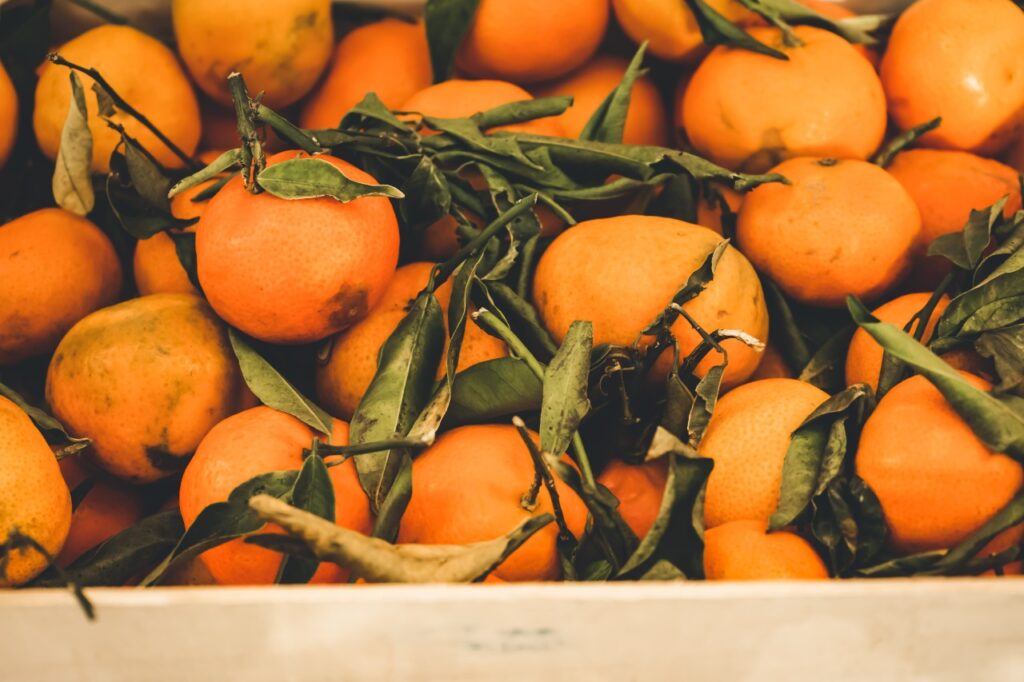At times of celebration (like a coronation, mayhaps), medieval noblemen, were afforded a rich opportunity to display all of their wealth and grandeur through the medium of food!
Banquet tables overflowed with jellies, pies, fritters and stews, while animals such as peacocks provided spectacular centrepieces. Fruit and spice were exotic indulgences, shipped from lands afar. Valencia Oranges, with their spiced batter and sugar coating, were prized delicacies – the equivalent of a medieval donut.
Jane’s Medieval Kitchen, residing in Loxwood’s Living History Village, provided this delicious Valencia Oranges recipe so you can taste these juicy pops of goodness for yourself…
Serves: 6 – 8 people
Ingredients
- Valencia Oranges x 4 (any small, flavoursome oranges will do)
- Buttermilk ½ pint
- Eggs x 2
- Mace
- Sweet Cinnamon
- Nutmeg
- Cane sugar
- Cooking oil (around 1 cm deep in a pan)
How to make Valencia Oranges
Making Valencia Oranges is remarkably simple, but the results are mouth-wateringly good. To start, we make a spicy batter of buttermilk, eggs and sweet spices, and also a little dipping bowl of sugar and spice to roll the oranges in once they’re fried.
For the dipping bowl, combine half a teaspoon of nutmeg, sweet cinnamon and mace with a teaspoon of sugar.
For the batter, in a separate bowl, combine a teaspoon of each of the same ingredients and add a pinch of salt to bring out the flavours. Whisk together with the eggs and then add the buttermilk. Play around with taste and consistency until you are happy with the flavour. The batter should be rich enough to stick to the oranges and create a slow, smooth drip off a spoon.
In medieval times, buttermilk was a by-product of churning butter, which could take half an hour. But fear not – these days you can buy it in your local supermarket milk aisle.
Top tip – Adding a splash of water to your batter will make it crispy!
Once your mix is ready, segment out your oranges and then dip until they’re covered in the batter before shallow frying in a pan. Turn over after a few seconds – the batter will be golden and crispy when cooked. Now the segments can be removed from the oil, dipped in the sugar and spice, and left to cool slightly before being served. On a silver platter, of course!
Jane’s Medieval Kitchen is a highlight of the Loxwood Medieval Festival’s Living History Village. Visit Jane’s Kitchen for live demonstrations and tastings of exquisite medieval fayre. Find out what else is on at The Loxwood Joust 2023, or buy tickets here.



